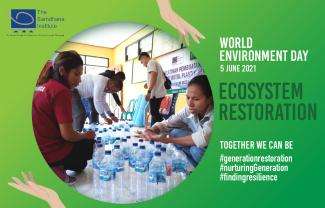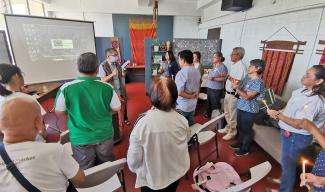In East Nusa Tenggara (NTT), youth groups are eager to learn and contribute to their communities’ future. Despite limitations caused by Covid-19, Samdhana Institute was able to support the Association of Child Rights Activists (Perkumpulan Aktivis Peduli Hak Anak - PAPHA) in Sikka Regency, where young people are encouraged to learn about climate change and what they can do to mitigate and lessen its local impact.
At Kolisia B village in the Waioiti sub- district, teenagers attended an opening socialisation event to understand better why there are changes in the climate and what it means for them, the environment and their livelihoods. Here they set about sketching their village map; an essential component for analysing and drafting their community’s Climate Vulnerability and Climate Analysis (CVCA). Also in attendance were local government staff, who were fully supportive of the project.
The youth groups have committed to regular clean-ups of plastic waste in Kolisia B and in public areas of Waioiti, covering at least a kilometre of their beach each week. Plastic waste collected will be sold via waste banks or used as raw materials for furniture – such as chairs, tables and even sofas, that will be produced and sold by the Waioiti community.
During the event, participants also tried their hands at sustainable agriculture techniques and technologies – ploughing the soil, arranging planting beds and applying organic fertiliser. They also built a simulated drip irrigation farming system, which they installed on 450 m2 of land.
Looking ahead, these youth groups have committed to practicing the skills they learned in their homes and backyards, and educate their community about waste management. Other plans include the establishment of rubbish bins along the coastline, so returning tourists can support local efforts to keep the beach clean. With such dedication and innovation shown by its young members, the future of the Sikka community appears to be in good hands.




